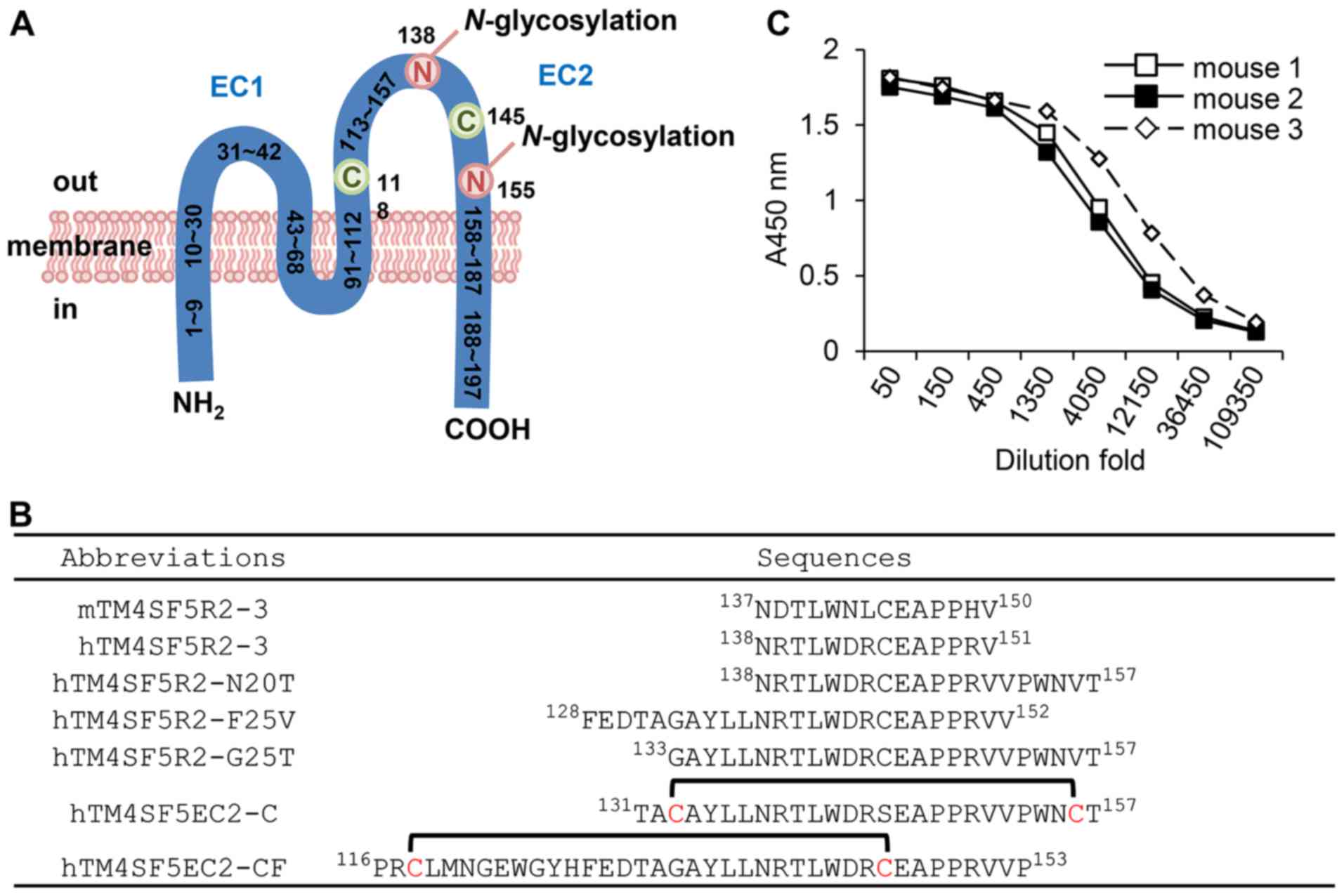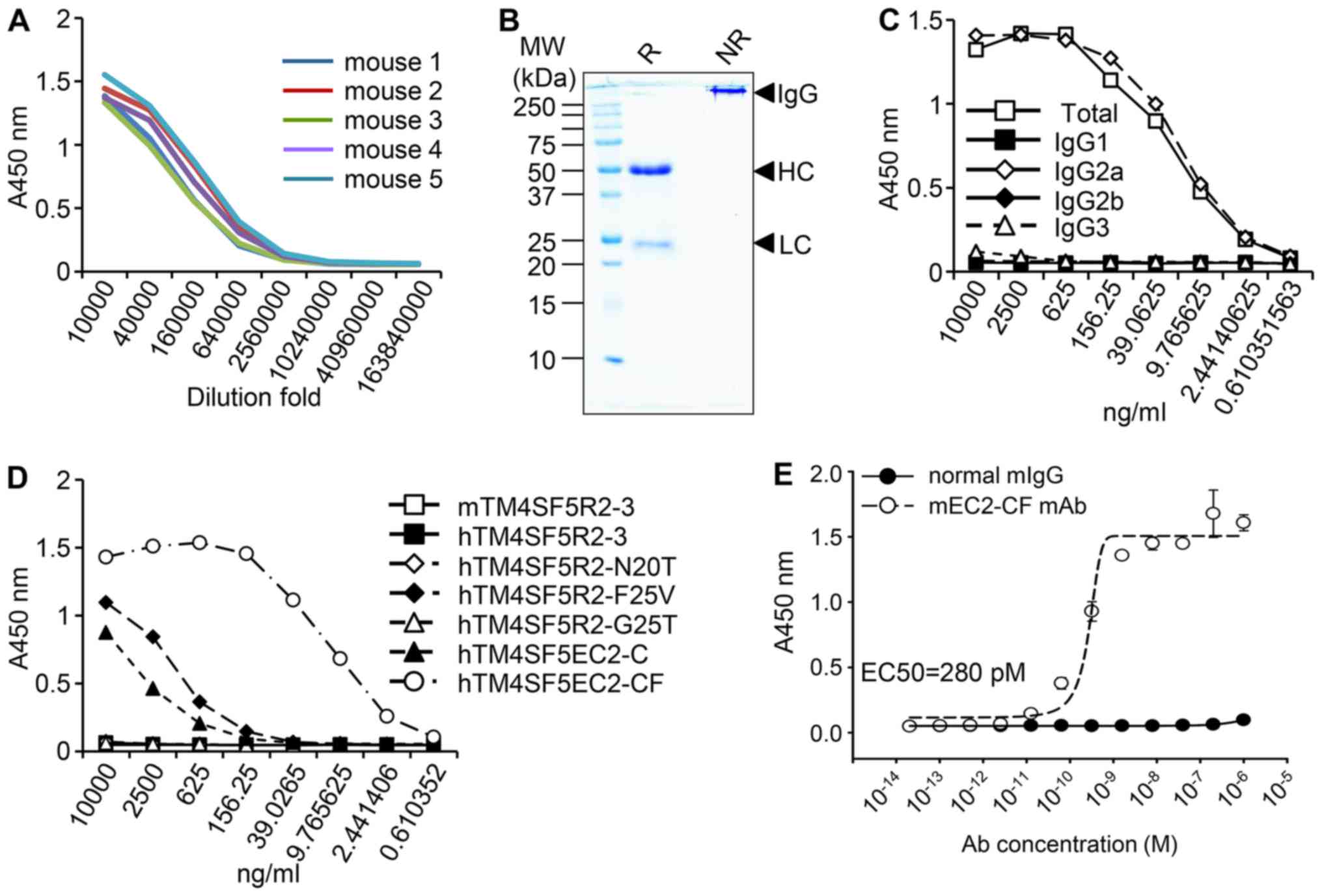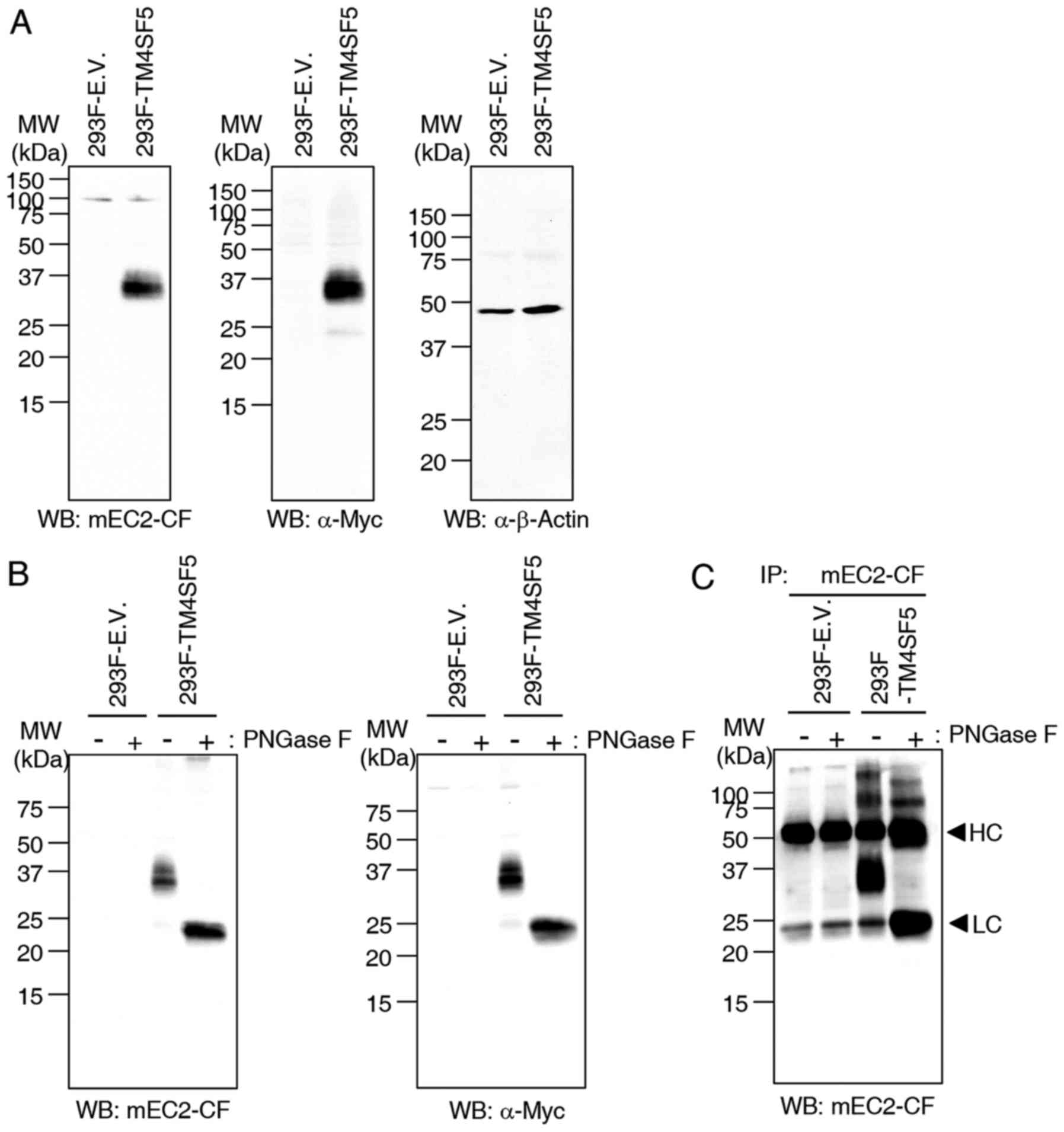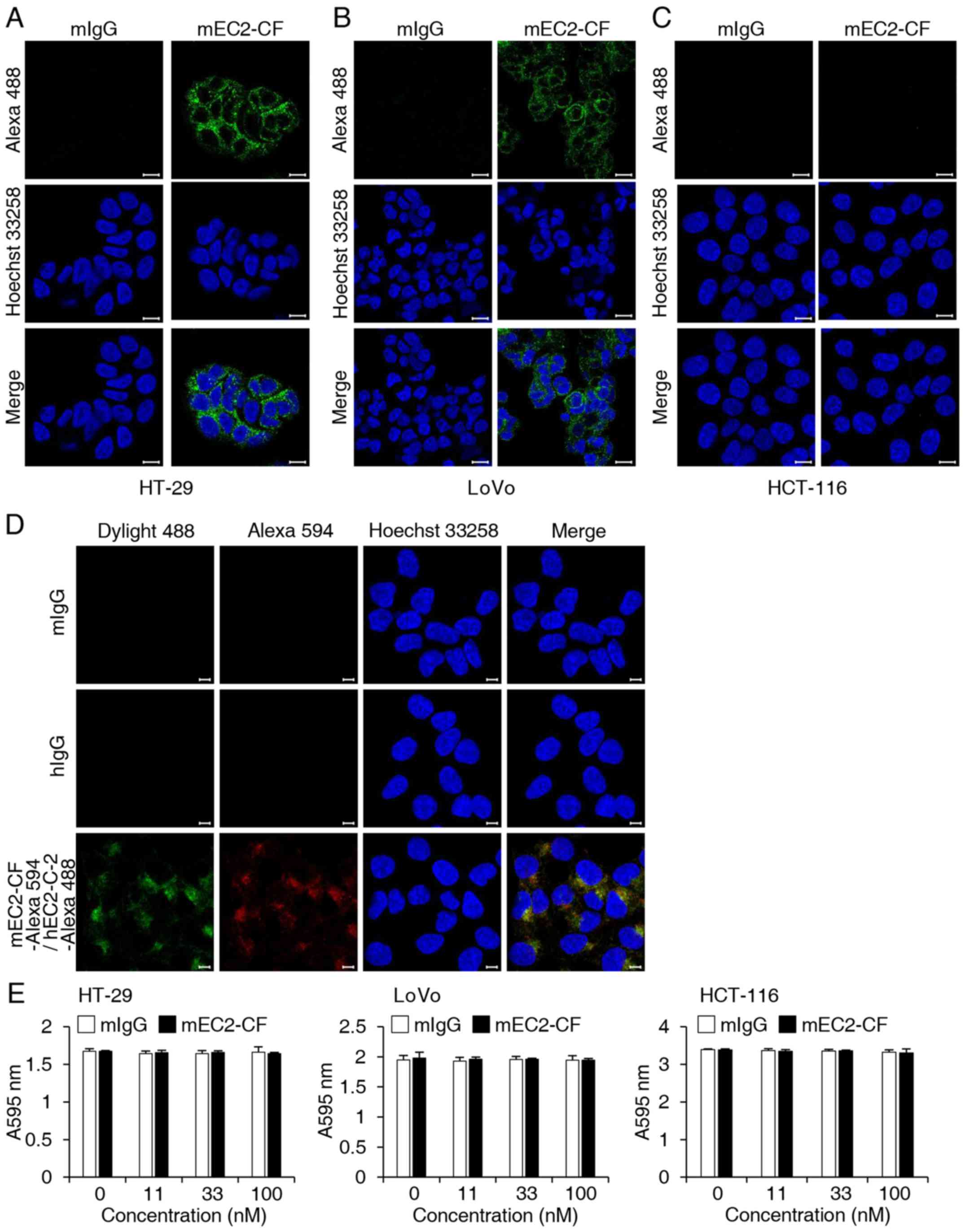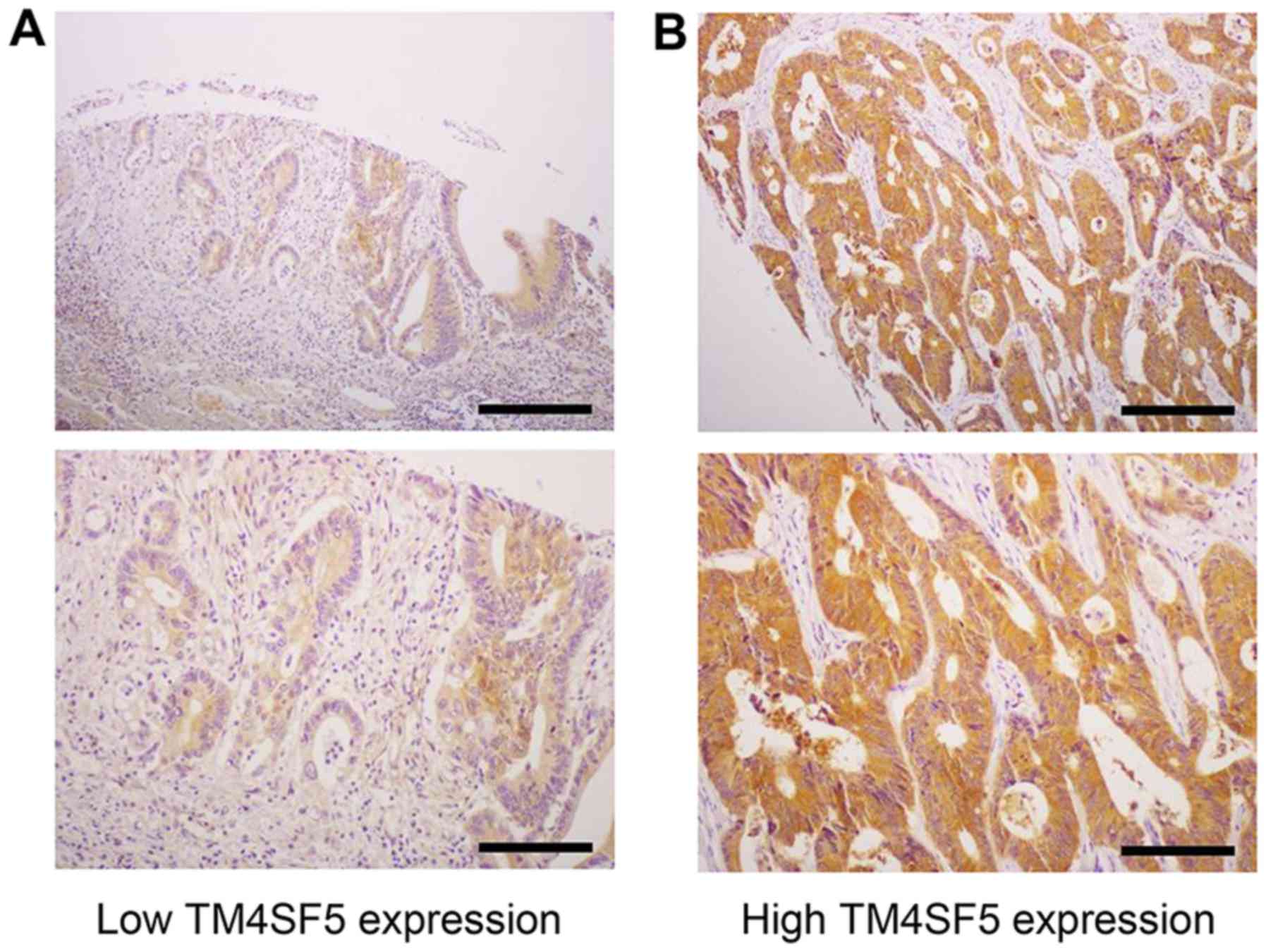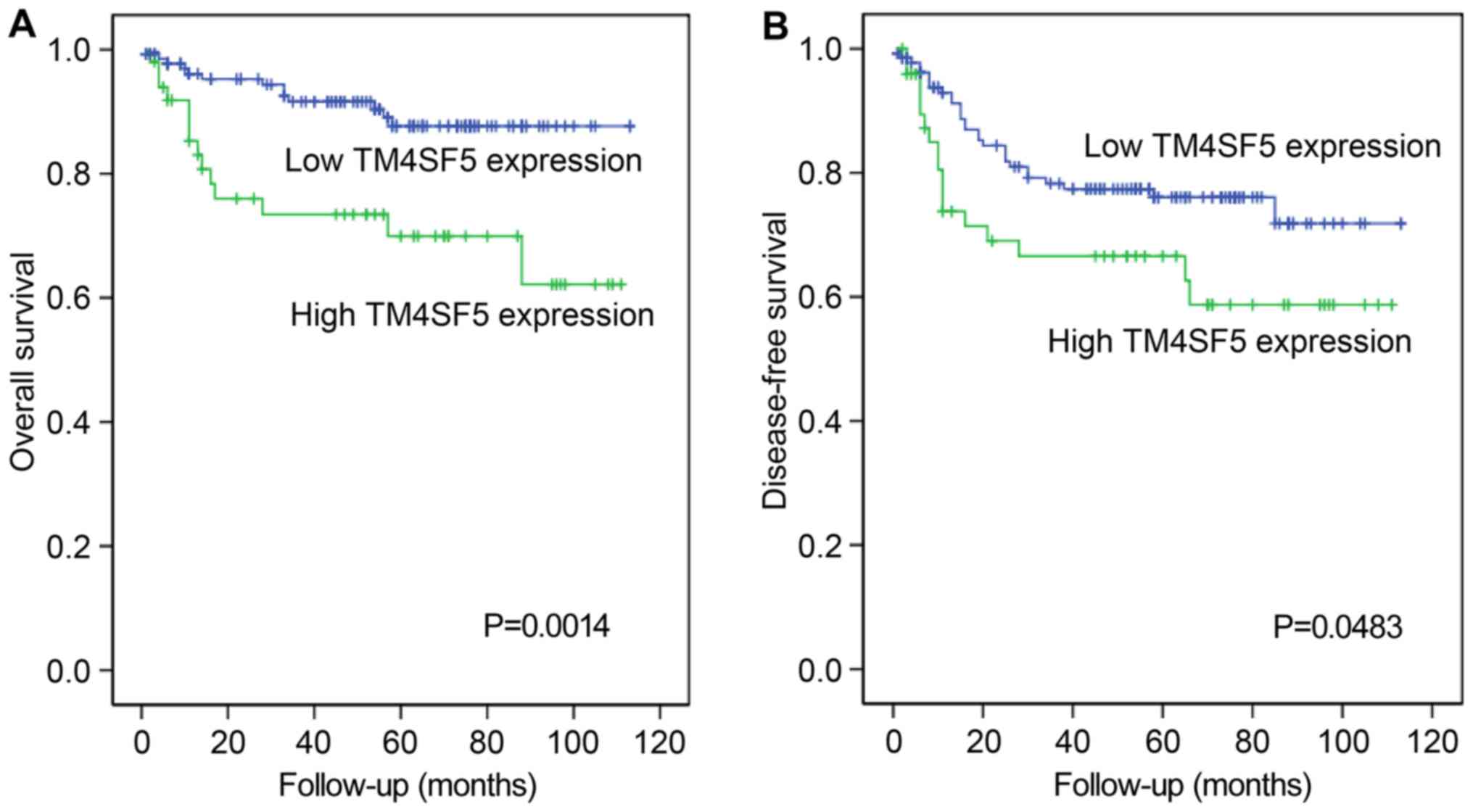|
1
|
World Health Organization: GLOBOCAN 2012:
Estimated Cancer Incidence, Mortality and Prevalence Worldwide in
2012. http://globocan.iarc.fr/Pages/fact_sheets_cancer.aspx.
Retrieved April, 2015.
|
|
2
|
Wilkinson N and Scott-Conner CE: Surgical
therapy for colorectal adenocarcinoma. Gastroenterol Clin North Am.
37:253–267. 2008. View Article : Google Scholar : PubMed/NCBI
|
|
3
|
Goodwin RA and Asmis TR: Overview of
systemic therapy for colorectal cancer. Clin Colon Rectal Surg.
22:251–256. 2009. View Article : Google Scholar :
|
|
4
|
Müller-Pillasch F, Wallrapp C, Lacher U,
Friess H, Büchler M, Adler G and Gress TM: Identification of a new
tumour-associated antigen TM4SF5 and its expression in human
cancer. Gene. 208:25–30. 1998. View Article : Google Scholar : PubMed/NCBI
|
|
5
|
Lee SA, Lee SY, Cho IH, Oh MA, Kang ES,
Kim YB, Seo WD, Choi S, Nam JO, Tamamori-Adachi M, et al:
Tetraspanin TM4SF5 mediates loss of contact inhibition through
epithelial-mesenchymal transition in human hepatocarcinoma. J Clin
Invest. 118:1354–1366. 2008. View
Article : Google Scholar : PubMed/NCBI
|
|
6
|
Lee SA, Ryu HW, Kim YM, Choi S, Lee MJ,
Kwak TK, Kim HJ, Cho M, Park KH and Lee JW: Blockade of
four-transmembrane L6 family member 5 (TM4SF5)-mediated
tumorigenicity in hepatocytes by a synthetic chalcone derivative.
Hepatology. 49:1316–1325. 2009. View Article : Google Scholar : PubMed/NCBI
|
|
7
|
Kwon S, Kim D, Park BK, Cho S, Kim KD, Kim
YE, Park CS, Ahn HJ, Seo JN, Choi KC, et al: Prevention and therapy
of hepatocellular carcinoma by vaccination with TM4SF5
epitope-CpG-DNA-liposome complex without carriers. PLoS One.
7:e331212012. View Article : Google Scholar : PubMed/NCBI
|
|
8
|
Kwon S, Kim D, Park BK, Wu G, Park MC, Ha
YW, Kwon HJ and Lee Y: Induction of immunological memory response
by vaccination with TM4SF5 epitope-CpG-DNA-liposome complex in a
mouse hepatocellular carcinoma model. Oncol Rep. 29:735–740. 2013.
View Article : Google Scholar
|
|
9
|
Kwon S, Kim YE, Kim D, Park BK, Wu G, Kim
TH, Choi SH, Kim DS, Kwon HJ and Lee Y: Prophylactic effect of a
peptide vaccine targeting TM4SF5 against colon cancer in a mouse
model. Biochem Biophys Res Commun. 435:134–139. 2013. View Article : Google Scholar : PubMed/NCBI
|
|
10
|
Wu YB, Huang YS, Xu YP, Sun YF, Yu DL,
Zhang XQ, Long X, Zhu SQ, Zhou JL and Xu JJ: A high level of TM4SF5
is associated with human esophageal cancer progression and poor
patient survival. Dig Dis Sci. 58:2623–2633. 2013. View Article : Google Scholar : PubMed/NCBI
|
|
11
|
Wright MD, Ni J and Rudy GB: The L6
membrane proteins - a new four-transmembrane superfamily. Protein
Sci. 9:1594–1600. 2000. View Article : Google Scholar : PubMed/NCBI
|
|
12
|
Detchokul S, Williams ED, Parker MW and
Frauman AG: Tetraspanins as regulators of the tumour
microenvironment: Implications for metastasis and therapeutic
strategies. Br J Pharmacol. 171:5462–5490. 2014. View Article : Google Scholar
|
|
13
|
Yáñez-Mó M, Barreiro O, Gordon-Alonso M,
Sala-Valdés M and Sánchez-Madrid F: Tetraspanin-enriched
microdomains: A functional unit in cell plasma membranes. Trends
Cell Biol. 19:434–446. 2009. View Article : Google Scholar : PubMed/NCBI
|
|
14
|
Jung O, Choi S, Jang SB, Lee SA, Lim ST,
Choi YJ, Kim HJ, Kim DH, Kwak TK, Kim H, et al: Tetraspan
TM4SF5-dependent direct activation of FAK and metastatic potential
of hepatocarcinoma cells. J Cell Sci. 125:5960–5973. 2012.
View Article : Google Scholar : PubMed/NCBI
|
|
15
|
Kim HJ, Kwon S, Nam SH, Jung JW, Kang M,
Ryu J, Kim JE, Cheong JG, Cho CY, Kim S, et al: Dynamic and
coordinated single-molecular interactions at TM4SF5-enriched
microdomains guide invasive behaviors in 2- and 3-dimensional
environments. FASEB J. 31:1461–1481. 2017. View Article : Google Scholar : PubMed/NCBI
|
|
16
|
Lee SA, Kim YM, Kwak TK, Kim HJ, Kim S, Ko
W, Kim SH, Park KH, Kim HJ, Cho M, et al: The extracellular loop 2
of TM4SF5 inhibits integrin alpha2 on hepatocytes under collagen
type I environment. Carcinogenesis. 30:1872–1879. 2009. View Article : Google Scholar : PubMed/NCBI
|
|
17
|
Kwon S, Choi KC, Kim YE, Ha YW, Kim D,
Park BK, Wu G, Kim DS, Lee Y and Kwon HJ: Monoclonal antibody
targeting of the cell surface molecule TM4SF5 inhibits the growth
of hepatocellular carcinoma. Cancer Res. 74:3844–3856. 2014.
View Article : Google Scholar : PubMed/NCBI
|
|
18
|
Kim YE, Kwon S, Wu G, Kim D, Park BK, Park
JA, Choi KC, Kim DS, Kwon HJ and Lee Y: Therapeutic effect of a
TM4SF5-specific monoclonal antibody against colon cancer in a mouse
model. Oncotarget. 5:8402–8415. 2014. View Article : Google Scholar :
|
|
19
|
Wu G, Kim D, Park BK, Park S, Ha JH, Kim
TH, Gautam A, Kim JN, Lee SI, Park HB, et al: Anti-metastatic
effect of the TM4SF5-specific peptide vaccine and humanized
monoclonal antibody on colon cancer in a mouse lung metastasis
model. Oncotarget. 7:79170–79186. 2016. View Article : Google Scholar : PubMed/NCBI
|
|
20
|
Kim D, Kwon S, Ahn CS, Lee Y, Choi SY,
Park J, Kwon HY and Kwon HJ: Adjuvant effect of
liposome-encapsulated natural phosphodiester CpG-DNA. BMB Rep.
44:758–763. 2011. View Article : Google Scholar : PubMed/NCBI
|
|
21
|
Park BK, Choi SH, Kim YE, Park S, Lee Y,
Lee KW and Kwon HJ: Monoclonal antibodies against the human
respiratory syncytial virus obtained by immunization with epitope
peptides and CpG-DNA-liposome complex. Monoclon Antib Immunodiagn
Immunother. 34:101–109. 2015. View Article : Google Scholar : PubMed/NCBI
|
|
22
|
Park BK, Lee SI, Lee Y and Kwon HJ: Effect
of a monoclonal antibody against human relaxin-2 on cancer cell
growth inhibition. Appl Biol Chem. 59:739–746. 2016. View Article : Google Scholar
|
|
23
|
Yokoyama WM: Production of monoclonal
antibodies. Curr Protoc Cytom 2006. Appendix 3:Appendix 3J. 2006.
View Article : Google Scholar
|
|
24
|
Yokoyama WM, Christensen M, Santos GD and
Miller D: Production of monoclonal antibodies. Curr Protoc Immunol.
74:1–25. 2006.
|
|
25
|
Kim D, Kwon S, Rhee JW, Kim KD, Kim YE,
Park CS, Choi MJ, Suh JG, Kim DS, Lee Y, et al: Production of
antibodies with peptide-CpG-DNA-liposome complex without carriers.
BMC Immunol. 12:292011. View Article : Google Scholar : PubMed/NCBI
|
|
26
|
Kwon S, Kim YE, Park JA, Kim DS, Kwon HJ
and Lee Y: Therapeutic effect of a TM4SF5-specific peptide vaccine
against colon cancer in a mouse model. BMB Rep. 47:215–220. 2014.
View Article : Google Scholar :
|















